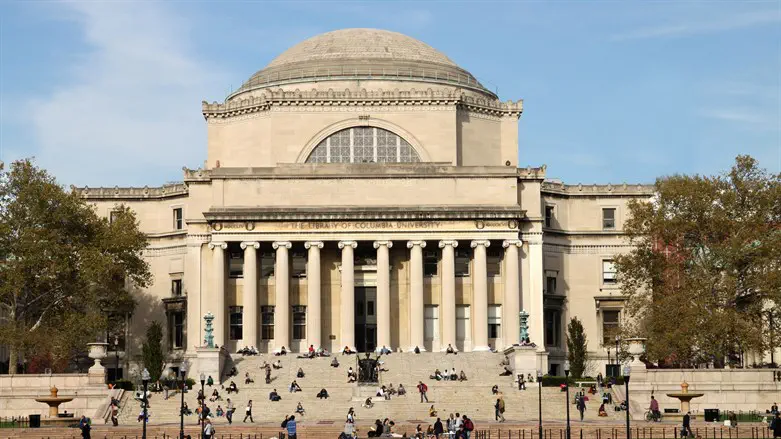
A federal immigration judge in Louisiana indicated on Tuesday that she may soon dismiss the deportation case against Mahmoud Khalil, a Columbia University student activist detained for his participation in pro-Palestinian Arab campus protests, unless federal authorities present concrete evidence to justify his removal, The Associated Press reported.
Judge Jamee Comans presided over a hearing in which she gave the US government a deadline of Wednesday to submit documentation supporting its claims against Khalil, a 30-year-old legal resident who has been held in an isolated detention facility in Jena, Louisiana, for over a month.
“I’d like to see the evidence,” Comans stated during the proceedings. “If the government cannot produce justification for removing Khalil, then I am going to terminate the case on Friday.”
Khalil’s legal representative, Marc Van Der Hout, who joined the hearing via video from California, criticized the government for its lack of transparency. “We cannot plead until we know what the specific allegations are,” he said, noting that his team had “not received a single document” outlining the accusations.
Khalil was apprehended by immigration officers on March 8 in the lobby of his New York City apartment building and was transported to Louisiana.
His detention marked the beginning of a broader enforcement effort aimed at international students involved in campus demonstrations opposing Israeli military action in Gaza. Khalil, who served as a student liaison during protests at Columbia, has not been criminally charged nor arrested, and denies accusations of antisemitism.
The government accuses Khalil of failing to disclose on his residency application what it described as his "membership" in the United Nations’ Palestinian refugee agency, UNRWA.
However, UNRWA and his lawyers clarify that he merely completed an unpaid internship at the agency’s New York office as part of his Columbia master’s program, which was listed in his application.
In a letter written from detention, Khalil rejected the allegations and framed his detention as retaliation for his political views. “This is a direct consequence of exercising my right to free speech as I advocated for a free Palestine and an end to the genocide in Gaza,” he wrote.
Meanwhile, a separate legal battle over his detention is unfolding in federal court in New Jersey, where a judge has refused the government’s attempt to move the case to Louisiana but has yet to decide whether Khalil should be released.
